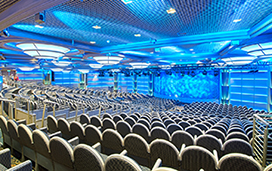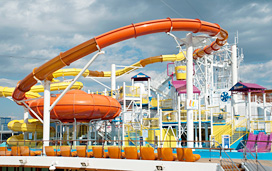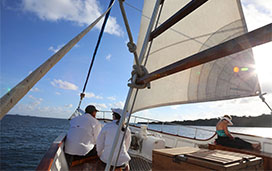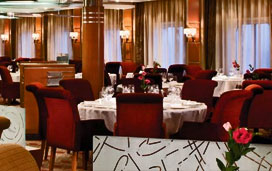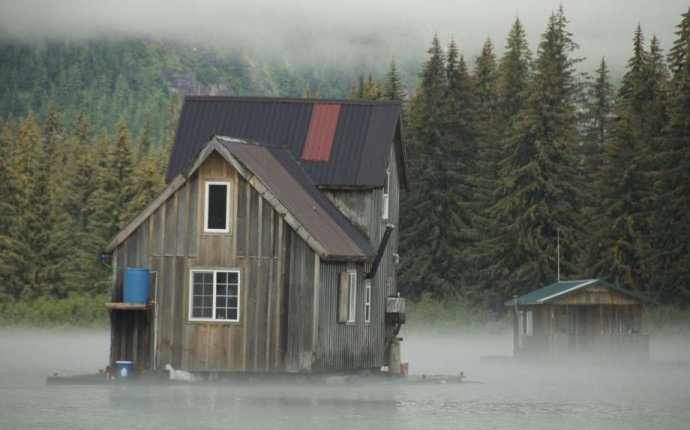
Smaller Cruise ships
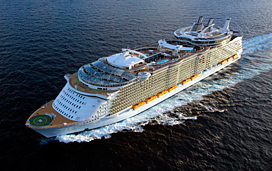 Too huge or perhaps not too big? That's the question for a lot of cruisers considering attempting a ship of a unique size, whether or not they're beginners or old salts. With mega-vessels featuring a dizzying range amenities, dining choices and entertainment options, and little ships providing an even more intimate and sometimes exclusive knowledge, the dimensions decision are an arduous one.
Too huge or perhaps not too big? That's the question for a lot of cruisers considering attempting a ship of a unique size, whether or not they're beginners or old salts. With mega-vessels featuring a dizzying range amenities, dining choices and entertainment options, and little ships providing an even more intimate and sometimes exclusive knowledge, the dimensions decision are an arduous one.
We have created a listing of elements to take into account before making an option about whether bigger is much better or little is the strategy to use. Take a look at our advantages and disadvantages here.
Publisher's Note: For the functions of this article, we're deciding on "little" vessels to-be any vessel holding 1, 599 or fewer passengers and "big" boats to be such a thing with a traveler capability of 1, 600 or even more.
Big Ships
Range guests
Professional: if you are somebody who doesn't mind an audience, a huge ship could be the spot to take action. With some vessels - like those who work in Royal Caribbean's Oasis Class - holding more than 5, 000 individuals per cruising, it really is unlikely you'll come across equivalent folks two times during a weeklong voyage. With so many taverns, lounges and out-of-the-way nooks and crannies, it's easy to get a hold of an area on your own, but people who prefer to continuously fulfill new people will especially find mega-ships attractive.
Con: Sailing about what's essentially a floating city are overwhelming and likely don't feel intimate. On large vessels with bad designs, lines for anything from the buffet into the movie theater can be long, and best of luck finding a deck chair by the share.
Food Options
 Pro: if you should be effortlessly tired of consuming in identical dining room every evening, huge ships supply a lot of options to change it up. On larger vessels, you'll have sushi one night, Italian the following, French the next evening and fish and shellfish or steak the day after that. The possibilities tend to be almost endless, which can be a bonus for anybody that's a picky eater (or anyone that is vacationing with one).
Pro: if you should be effortlessly tired of consuming in identical dining room every evening, huge ships supply a lot of options to change it up. On larger vessels, you'll have sushi one night, Italian the following, French the next evening and fish and shellfish or steak the day after that. The possibilities tend to be almost endless, which can be a bonus for anybody that's a picky eater (or anyone that is vacationing with one).
Con: it’s likely that good that you'll become shelling out supplemental income to dine at the very least a couple of the choice eateries. Bookings can be difficult to find for many regarding the more exclusive choices; if you're dying to use one in specific, book before you board.
Entertainment Offerings
Professional: bigger vessels boast much more features, therefore it follows naturally that they provide more entertainment options. From comedians, online game programs and Broadway revues to magicians, flicks and dinner theater productions, there's something to help keep just about everyone hectic.
Con: often it is hard to decide in which you want to be and what you need doing. Can I get the film regarding share deck or check out the lounge for karaoke? Basically miss the program tonight, could I notice it once more with this sailing? Also, a select couple of events do carry an extra cost to attend, and this can be a drawback.
Activities
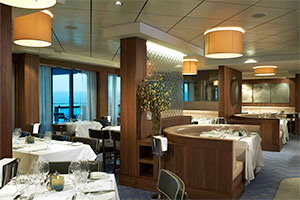 Pro: include ropes courses, skydiving and innovative waterslides on host of choices that keep guests hectic onboard. Because bigger boats offer something for nearly everybody else, they're frequently a solid option whoever's easily annoyed, couples or groups with varied interests and multigenerational groups. (Think bingo for grandpa and grandma, supper shows for dad and mom, and innovative kid's programming when it comes to children.)
Pro: include ropes courses, skydiving and innovative waterslides on host of choices that keep guests hectic onboard. Because bigger boats offer something for nearly everybody else, they're frequently a solid option whoever's easily annoyed, couples or groups with varied interests and multigenerational groups. (Think bingo for grandpa and grandma, supper shows for dad and mom, and innovative kid's programming when it comes to children.)
Con: As is the case with a large variety of entertainment options, having a lot of task alternatives makes any cruiser's head spin.
Small Ships
Pro: tiny vessels, by meaning, carry a lot fewer individuals. You'll likely look at exact same faces over and over on a regular basis and progress to know them exceedingly well by the end of sailing.
Con: if you should be someone who would rather hold a reduced profile, a vessel with a more substantial passenger count is most likely an improved bet. On an inferior ship, a small number of annoying individuals will make or break a visit.
Pro: Many small boats, for their minimal area, only have one primary living area for dishes, as well as generally do not let for such a thing aside from consuming at set times with ready tablemates. (Others might have alternate eateries, but they're restricted.)
Con: Menu options is slim, specially with a shortage of alternate restaurants. If you should be an individual who likes variety, you may have trouble finding it on an inferior vessel.
Pro: you'll not find much in the way of gambling enterprises, movie theater productions or magicians, but that leaves area to get more academic pursuits. Small boats often supply enrichment seminars on sets from photography to regional culture. Often regional performers are brought onboard to host, too. Think historians, musicians and performers.
Con: If record and culture are not interesting for you, it's likely you have trouble finding some thing to inhabit your time onboard. Expect you'll deliver some reading product.
Pro: Because small boats never provide multitude of amenities that large vessels do, the sailings they provide focus mainly on the spots they see, as opposed to the vessels on their own. This means excursions are fundamental, and usually concentrate on the record and tradition of a spot, which makes it easy for cruisers to submerge on their own in their surroundings and learn a great deal about the locations by which they call. In addition, because of their tinier dimensions, little vessels can turn to even more remote harbors that can not accommodate mega-ships.
